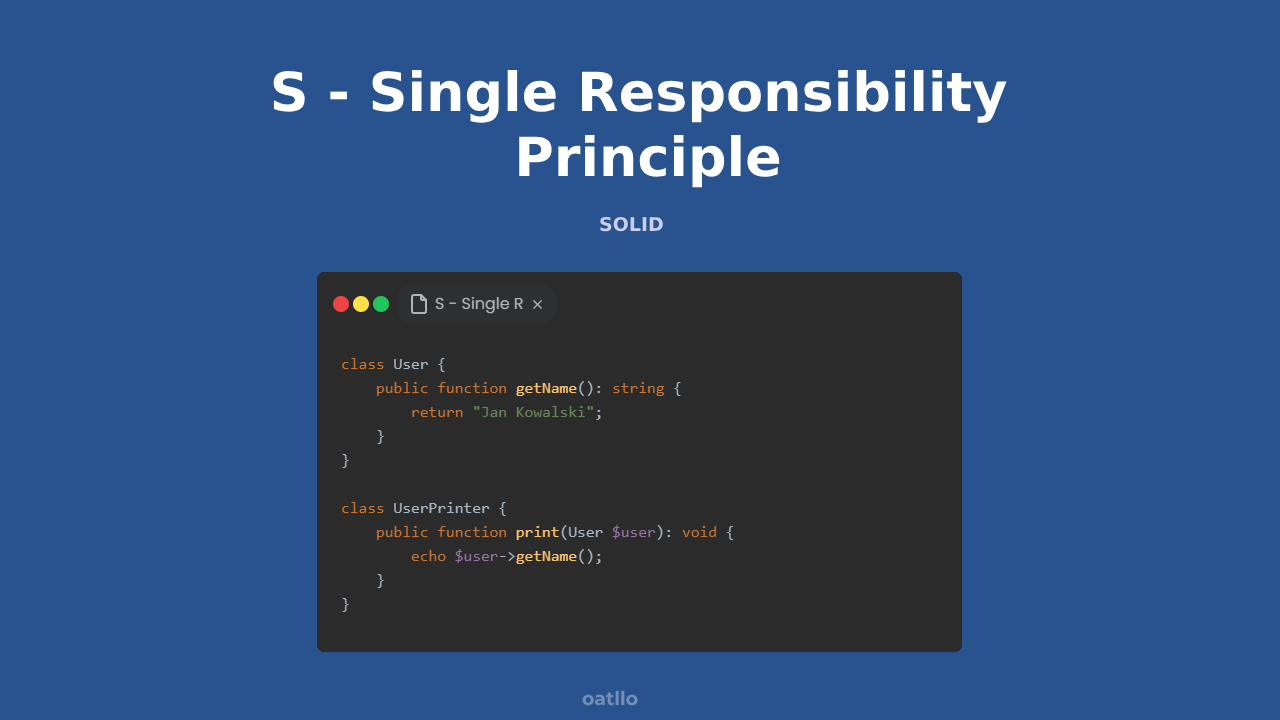What is SRP?
SRP, or the Single Responsibility Principle, is one of the fundamental principles in object-oriented programming, crucial for maintaining code readability and ensuring its extensibility. This principle states that each class should have only one responsibility, which in practice means it should do only one thing.
Why is SRP important for PHP developers?
In the context of PHP programming, applying the SRP ensures that code is more modular and easier to test. This allows developers to modify or extend code without the risk of introducing bugs in other parts of the application. The principle is especially important when working on larger projects, where multiple people are interacting with the same codebase.
How to apply SRP in PHP projects?
To effectively implement the Single Responsibility Principle in PHP projects, it’s important to start by analyzing the functions of individual classes and methods. Each class should have a clearly defined role and responsibility. It’s also worth considering the use of design patterns such as Factory or Strategy, which can help maintain SRP in practice.
Best practices related to SRP
When implementing SRP in PHP, it’s a good idea to follow these practices:
- Split large classes into smaller ones that focus on a single responsibility.
- Avoid excessive logic inside classes, which makes them easier to understand.
- Regularly refactor code to ensure that the SRP is being followed.
Why SRP is key in programming
Understanding and applying the Single Responsibility Principle can significantly impact the quality and efficiency of your code. Companies and development teams that embrace this principle often notice improvements in their software development processes as well as reduced time spent diagnosing and fixing bugs.
Be sure to check out the articles below to learn more about the SRP and its practical applications in PHP programming!
